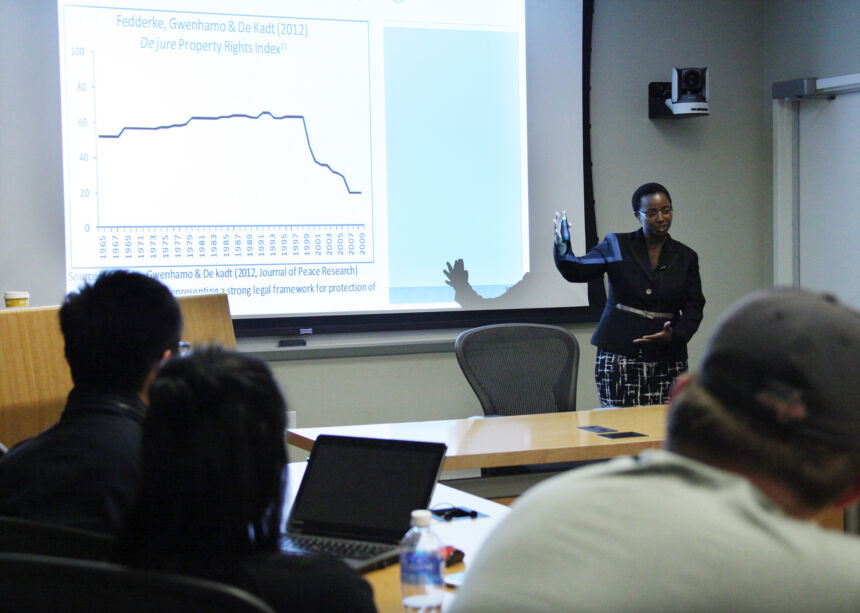April 21, 2016
Economist from International Monetary Fund speaks at SIA

UNIVERSITY PARK, Pa -- Farayi Gwenhamo, an economist from the International Monetary Fund, spoke on April 20 about “Institutional Developments in Zimbabwe: Long-Run Impact on Economic Growth and Foreign Direct Investment” as part of the Penn State School of International Affairs Seminar Series.
Gwenhamo spoke about Zimbabwe as a critical example of how economic institutions break down. She explained that economic institutions are formal and informal rules and regulations governing economics and politics, and include the political economy, general political freedoms, and property rights.
In Zimbabwe, after its independence, these institutions broke down because of bad economic policy. For example, Zimbabwean leaders used economic policy to try to correct the inequality of the distribution of wealth, but after independence, a minority of wealthy British still owned the majority of the land. The economic policy put into place, fast-tracked land reform, authorizing government appropriation of white-owned commercial farms, without compensation. This led to violent land invasions by natural born citizens.
“Redistributing wealth and land reform had to be done,” she said. “But it was the way it was done that resulted in bad policy.”
Bad economic policies result in a general weakening of political institutions and stunt economic growth and foreign direct investments. Gwenhamo explained that reforms to address skewed distribution of wealth need to be carefully crafted and implemented.
Gwenhamo has been with the International Monetary Fund for four years. Previously she was a lecturer at the University of Cape Town and the University of Zimbabwe.
